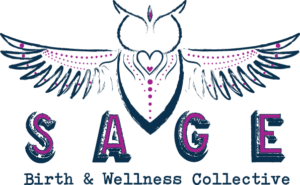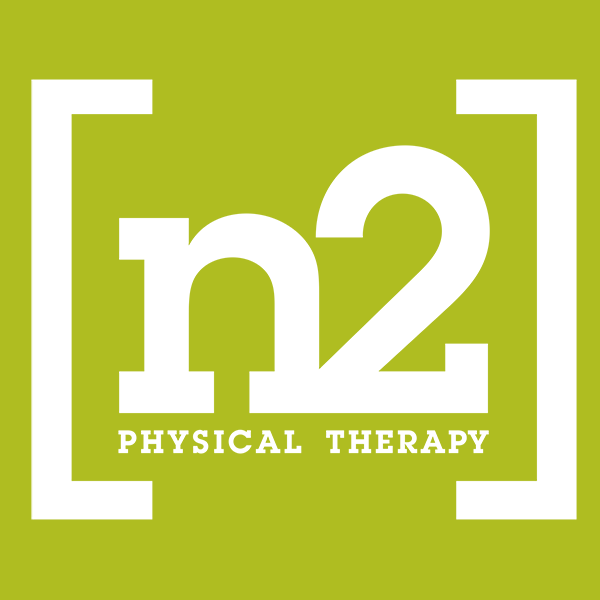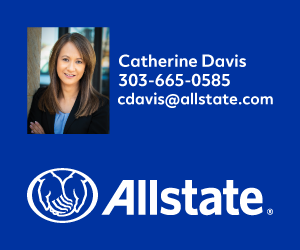A few days ago, my children and I sat on a patio having lunch with a good friend for her birthday. I held her newborn baby while my girls cooed and tried to make him smile and my friend managed to eat some bites of her food with her hands free. As we sat there, we were startled by a loud noise from the street just feet away from us. Smoke was pouring from beneath the hood of an SUV stopped at a stoplight.
My girls were alarmed. “Somebody needs to help him!” my nine-year-old cried out in concern, and her four-year-old sister echoed her worried sentiments. I looked down at the baby in my arms and contemplated my own physical strength and knowledge of cars and said, “I don’t think we’re the right people for that job today, girls.”
Seconds later, as though choreographed by some invisible distress signal, a handful of passersby appeared behind the man’s car and began to push it as one toward a nearby parking spot. The whole scene unfolded smoothly and gracefully, and when his car was safely parked out of traffic, the strangers high-fived one another and returned to wherever it was they came from.
“See?” I said happily, “Look how many people stopped to help him!”
“How did they know him?” my youngest daughter inquired. “They didn’t,” I explained. “They saw a man who needed help and they stopped to help him. Sometimes people are really wonderful.”
My children were relieved, satisfied, and heartened by witnessing this incident, and honestly, so was I.
Like many other parents who don’t read the paper in the morning and refrain from turning on potentially disturbing TV news around my kids, I often turn to Facebook to keep up with current events. And this past week has been a tough one. For the past few days, my newsfeed has been flooded with images of a cherubically grinning rapist and story after story on the horrifying Orlando Pulse shooting. And I can’t look away.
Also like many other parents, I think of my children during these times. But this time has been a little different. Yes, I imagine my children at risk of being raped or killed, and I think of what I can possibly do to prevent this from happening to them. (We just signed our girls up for martial arts, for one, and becoming more active in gun control campaigns is another thought that springs to mind.) But I’ve had something else on my mind these past weeks: What it means to be truly courageous.
As I contemplate which news stories to share with my oldest daughter and which ones I can spare her from for a few more years, I think of the popular Mr. Rogers quote I always see circulating after mass shootings and natural disasters.

Look for the helpers. I love this. My children were so moved to find “the helpers” when we watched from the restaurant patio as a driver was in distress. They were comforted and inspired. I often think of what it would mean for my own children to be in harm’s way. But right now I’m imagining what it would take for them to become the helpers. The bicyclists who didn’t look away or decide it wasn’t any of their concern when they saw a woman who was being attacked. The people who rushed to give blood to those in need. What does it take to raise children who are courageous enough to stand up for those who need it?
Because it takes more than just caring. It transcends empathy, which I know both of my children have in spades. It means having the courage to take a stand; it means sacrificing your own personal safety, security, or comfort in some large or small way to do something to protect someone who needs protecting.
And lately, I’ve been wondering if I’m setting a good enough example. I know my children are being raised never to be cruel, but that’s only a beginning. Children need to do better than just being loving and compassionate and refraining from cruelty; they need to learn how to stand up when they witness injustice or people in distress. Which starts with how we parent them.
I know that I’m teaching them to be loving, to include children who may be being left out, to never call names or use ugly words. But am I brave enough to take a stand? I’ve noticed lately that I find a lot of excuses that prevent me from speaking up.
At my daughter’s 4th grade Field Day a few weeks ago, a group of boys were piling up on top of one another in the dirt, laughing and shouting. Another one stood watching and loudly whispered, “That’s G-A-Y.”
I gave him my best raised-eyebrow death glare but said nothing. After all, what if his mom was standing right there? I didn’t know this kid; it wasn’t my business.
Then, just minutes later, as though my daily cosmic lesson clearly had yet to sink in, I found myself in conversation with a father of two daughters. We were talking about how scary the prospect of middle school and high school was, how prematurely sexualized kids today are. And then he shared a story with me, that, in retrospect, I actually think he meant to impress me with. He told me about a family member of his who attends a local high school, and how disgusted he was about a recent prom-posal in which a boy asked another boy to the prom, and how a crowd had gathered, and how people, including teachers, applauded them when they kissed.
Had I been told this story in other circumstances, I likely would have felt a swell of pride and teared up. But that was clearly not my intended reaction to this story. I stiffened and said nothing. Realizing his misstep, the man quickly amended that he himself didn’t judge anyone, but he thought it was a bit much to have it celebrated so much. I deftly changed the subject.
I should have said, “Good for those boys. Can you imagine what it could possibly mean to finally have your own relationship accepted and cheered on in such a way? Do you have any idea how hard they and others have fought to be received like that? I hardly believe that two boys kissing after a prom-posal are the most potent threat to our children’s sexualization.”
But I didn’t. I didn’t want to offend him, and plus, I knew people who knew him, and our kids might be in the same class next year.
Total. Bullshit. And it’s not the first time I’ve ignored an offensive, ignorant statement to avoid ruffling any feathers. Now I realize that every time I stay silent, I am part of the problem.
There’s always a reason to simply stay silent, look away, leave the room, or change the subject when someone makes a racist, sexist, or homophobic statement. Maybe they’re a relative, or worse, an in-law. Maybe they are the aging mother of your next-door neighbor and a lost cause anyway. Maybe it’s your mom’s best friend. We wouldn’t want to step on toes or make anyone uncomfortable. I’ve found that my crippling case of “Midwest Nice” often prevents me from taking a stand.
And I want it to be different for my children. I don’t want them to think twice before they call out a classmate on a homophobic statement. I want them to have the courage to tell an older cousin that their racist remark is unacceptable. In Brock Turner’s case, there were heroic cyclists who intervened. But how many rapes could be prevented by classmates or strangers actively stepping in to protect a woman or call out a classmate on his disgusting, criminal behavior? But that means not looking away, doesn’t it? I want my children to be the kind of people who step up to protect people. I want them to do better than I do, and that’s not good enough. I need to do better. I don’t want to be part of the problem.
I want to believe that we can find the helpers in the wake of violence, injustice, cruelty, and disaster. But more than that, I want to believe that we can be the helpers.
[jetpack_subscription_form]










Powerful thoughtful narrative. Thank you for this posting.
I agree with your mom. It’s so easy to remain silent when we should speak up against injustices of any kind. And then later we gasp and complain about how (bigoted ignorant, homophobic, cruel, whatever…..) that person was for saying such an offensive thing.
Instead of complaining, we need to speak up on the spot. (Surely there will be helpers to pick us up, won’t there?)
It’s becoming harder and harder to defend what’s right. I give credit to a presidential candidate who has made it “okay” to be cruel, to judge, to be rude, to make fun of people. Sadly many people seem to enjoy it…..it gives validity to their own hatred.
I long for the return to civility and equality.
I am guilty of the same thing sometimes, taking the easy way out. And I preach to the kids that doing the right thing is sometimes hard. I think we can stand up in a nice. I’m going to work on it. I agree civility is important, and we all have different opinions. I just wish we lived in a time when we were kinder.
Don’t be too hard on yourself, Stephanie.
I agree with you that it’s important to help others, to look out for those who are suffering and to take action to halt injustice. I also agree that children mirror how we parent.
However, how we speak up is as important (or more) than when we do. If we meet someone else’s judgement with judgement, we’re more likely to create defensiveness than a mind-shift in them. When we approach the judgers and haters with empathy, we can see they are driven by fear and start by connecting with that. It’s damned hard to do that, and I don’t always manage by any means and can just as easily either react or say nothing. Sometimes saying nothing is a valid approach, and our energy is better saved for persuading someone who is on the fence rather than deep in an entrenched viewpoint. And sometimes silence is as effective as anything else – that father who you wished you’d said more to clearly was affected by your silence. He changed his tune and said he didn’t judge people. Your reaction could well have given him pause for thought. If you had said what you wished you had, who knows? He might have taken it on board, or he might not even have heard half of what you said because he was internally (or externally) defending himself.
You’re very right! I do believe my kids are compassionate too but I do wonder if they would step up when things are not right, when their own friends are not doing the right thing! I have had that talk with my older one who is in middle school and though I acknowledged how hard it could be, I did try and impress upon him that it was the right thing to do!
Also, I get that rather than just talking, we should set an example, and here I’m happy that I finally am at an age where I no longer care to be nice when I see something that is clearly wrong, be it in my own culture, family or neighborhood. I get how uncomfortable it is to speak up though!
I think that man got the message by your silence, which can be eloquent in its own way. I agree there’s a fine line between not joining in the bashing of others but also having to put out every fire yourself. It can be exhausting changing the world. Sometimes a well-placed silence is the best we can do.
Stephanie- very thought provoking! I so appreciate your honesty. I have been the helper, I have stood up to bullys, I have gotten punched by muggers, and sometimes I’ve held back as you said because of my “Midwest Nice.” Teaching my son Jack to be the helper is complicated by his own peer pressure and societal norms. However, I role model whenever I can. After bringing diapers and a car seat to the hospital for a recently homeless new mom, we got back into our car and Jack turned to me and said, “We’re nice aren’t we?” Yes Jack, we are. 🙂